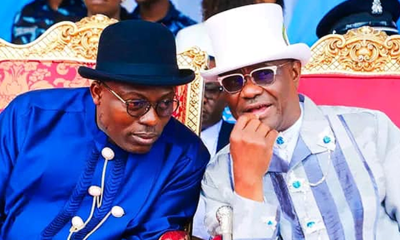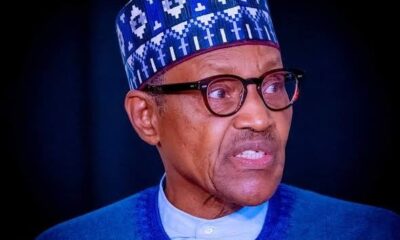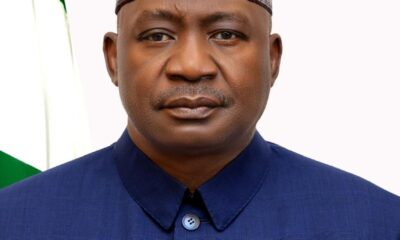Opinion
ASUU Strikes: The Endless Loop Nigeria Must Break

ASUU Strikes: The Endless Loop Nigeria Must Break
By Alabidun Shuaib AbdulRahman
If there is any rhythm that has refused to change in Nigeria’s academic calendar, it is the drumbeat of strikes by the Academic Staff Union of Universities (ASUU). Each cycle begins with a warning, swells into protests, and collapses into months of classroom paralysis. It makes students stranded, parents helpless, and the nation’s tertiary education trapped in recurring stagnation.
For decades, ASUU strikes have become a permanent punctuation in Nigeria’s educational story, making occurrences a tragedy that has outlived governments, policy directions, and even generations of undergraduates. The irony is that every new strike looks like the last: same demands, same government responses, same media debates, and the same outcome — suspension, not resolution.
How did Nigeria get here? And why does this crisis appear so cyclical, almost generational?
The Academic Staff Union of Universities was founded in 1978, emerging from the ashes of the Nigerian Association of University Teachers (NAUT). From inception, ASUU was not just a trade union; it was a conscience of the academia, a body that saw itself as guardian of intellectual autonomy, national development, and academic integrity.
But its relationship with the government has always been uneasy. The first major showdown came in 1988 during General Ibrahim Babangida’s regime, when ASUU embarked on a strike to demand fair wages, university autonomy, and funding. The government’s response was swift and draconian. ASUU was banned, its leaders detained, and salaries withheld. Yet, the union’s resilience prevailed, and by 1990, it was reinstated.
Since then, ASUU has gone on strike over twenty times, spanning military and democratic dispensations alike. The issues have remained stubbornly familiar: poor funding, unpaid allowances, inadequate infrastructure, decaying research capacity, and government’s failure to honour previous agreements.
The landmark agreement of 2009 between ASUU and the Federal Government was supposed to be a turning point. It captured key demands that included better welfare for lecturers, revitalisation of infrastructure, and university autonomy. But, as with many government pacts in Nigeria, the implementation was half-hearted and short-lived. The Memorandum of Understanding (MoU) in 2013, 2017, and 2020 merely recycled promises, each one becoming a prelude to the next crisis.
Every ASUU strike has two layers — the visible and the political. On the surface, it’s about funding and welfare. Beneath that lies distrust, ego, and inconsistent leadership.
Government negotiators often approach agreements as temporary pacifications rather than binding contracts. Ministries change, priorities shift, and promises fade. ASUU, on its part, wields strikes as its strongest bargaining tool. Sometimes effective but increasingly self-defeating.
Both sides share blame for the cyclical failure. Government often defaults, while ASUU, in its moral fervour, sometimes resists pragmatic reform, especially in accountability and diversification of funding. The result is a predictable dance: delay, protest, strike, negotiation, suspension and then repeat.
The consequences are devastating. Millions of students lose valuable academic time, universities fall behind global peers, and research collapses. Parents endure emotional and financial stress; employers distrust local degrees; and private universities quietly benefit from public dysfunction.
During the eight-month strike in 2022, Nigeria lost an estimated ₦1.5 trillion in productivity. Many lecturers relocated abroad, deepening brain drain. The crisis is no longer a union-government quarrel but a national emergency that undermines development.
Nigeria isn’t alone in facing academic labour disputes but other countries learned, adapted, and reformed.
In India, repeated strikes in the 1990s led to creation of the University Grants Commission Reforms, which institutionalised regular wage reviews and infrastructure funding insulated from political manipulation.
In South Africa, the “Fees Must Fall” crisis of 2015 forced government and universities to form oversight committees of academics and students to monitor education spending. Transparency replaced tension, restoring confidence.
Kenya went further. It enacted a Collective Bargaining Framework that legally binds both government and unions for four-year terms. No administration can unilaterally breach it without parliamentary approval. Predictability replaced confrontation.
Nigeria can learn from these examples. The problem is not absence of ideas but absence of political will and institutional discipline.
The heart of the problem is philosophical: Nigeria treats education as expenditure and not investment. That mindset must change.
While Ghana invests about 6.5% of GDP in education, Nigeria spends less than 2%. South Korea channels more into research than oil. Their progress is no mystery. They fund their future.
Every strike pushes Nigeria’s future further behind. Education is not just another sector; it is the soil on which every other grows. Without it, national development becomes guesswork.
Although ASUU’s struggle is noble but must evolve. Activism must give way to innovation. The union should complement resistance with reform, proposing alternative funding models, driving research-commercial partnerships, and mentoring new lecturers for modern academic challenges.
The government, on the other hand, must understand that signing agreements without intention to implement is governance without honour. Each broken promise erodes trust and provokes another strike.
A serious government should measure progress not by the number of schools built but by the quality of minds produced. When airports function better than universities, the country builds departures, not destinies.
If Nigeria truly wishes to end the ASUU strikes, both sides must shift from rhetoric to reform.
Every ASUU–Federal Government agreement should be backed by legislation. Once domesticated by the National Assembly, any breach becomes actionable, not negotiable. Education cannot thrive on verbal promises.
Beyond TETFund, Nigeria needs an Education Stabilisation Fund co-managed by government, ASUU, private sector, and alumni networks. Funding can come from education levies, grants, and endowments. This would provide consistent support regardless of annual budget politics.
ASUU must demonstrate stewardship. Universities should publish audited reports on how revitalisation or research funds are spent. Accountability strengthens credibility.
Set a four-year salary review cycle tied to inflation, GDP, and minimum wage benchmarks. Once automatic, it removes salary from recurring contention.
A permanent University Industrial Mediation Council (UIMC), composed of respected scholars, jurists, and labour experts, can serve as an early-warning system — intervening before crises escalate.
A public online dashboard showing government disbursements and ASUU obligations would foster accountability. When citizens can see the truth, both sides act more responsibly.
The future lies in structure, not sentiment. A binding framework, transparent governance, and joint accountability can end the strike culture permanently.
ASUU must rise beyond protest politics, and the government must govern with integrity. Both must see education as a shared project and not a battlefield.
If Nigeria’s leaders can build political peace accords and implement oil-sharing formulas, they can certainly fund and protect the education sector.
Until then, the next strike will not surprise anyone. It will simply mark another sequel in a story that should have ended years ago.
Analysis
The Agony of a Columnist, by Alabidun Shuaib AbdulRahman
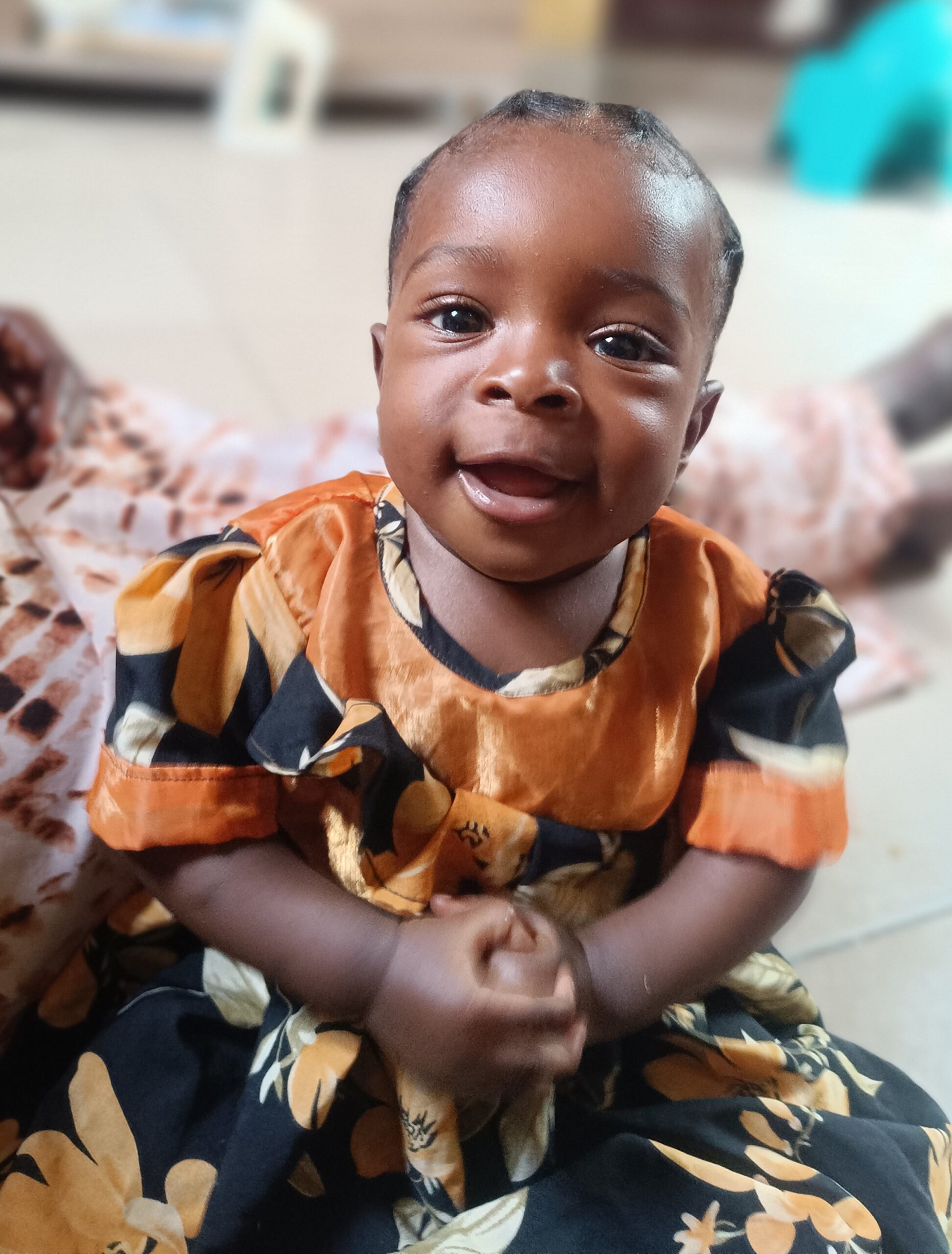
The Agony of a Columnist, by Alabidun Shuaib AbdulRahman
There are pains that refuse to be edited out of memory. No matter how carefully one chooses words, some experiences bleed through the page, heavy and unyielding. I write this not merely as a columnist accustomed to weighing public issues, but as a father whose pen now trembles under the weight of a personal loss that should never have happened.
The death of my eight-month-old daughter, Alabidun Rahmah AbdulRahman, is not just a private tragedy; it is a mirror held up to a system that looks impressive on the surface but collapses at the moment it is most needed.
On Friday, 23rd January 2026, my daughter was taken to General Hospital Suleja because she was unable to suck breast properly. It did not appear, at first, to be a death sentence. Like many parents, I trusted the judgment of trained professionals. The hospital itself inspired confidence. It is well renovated, neatly structured, and visually reassuring. From the outside, it looks like what a modern government hospital should look like. That appearance, in truth, persuaded me to use it. I believed, as any reasonable citizen would, that a facility that looks ready must surely be ready.
That belief became my greatest regret.
Rahmah was admitted the same day on the claim that her condition required emergency attention. She was taken into the Emergency Pediatric Unit, a designation that suggests urgency, speed, and competence. But what followed was neither urgent nor competent. For over thirteen hours, my daughter lay there in visible discomfort, struggling, crying faintly, weakening by the minute.
During this entire period, no doctor came to see her. The only available doctor was contacted several times by a Nurse. Calls were made. Messages were sent. Appeals were raised. Yet she never showed up, never examined the child, never intervened until she passed away Saturday night.
It is difficult to explain what it feels like to watch a child suffer while help remains just out of reach. Hospitals are supposed to be sanctuaries of hope, places where time matters and minutes are counted with seriousness. But in that Emergency Pediatric Unit in Suleja General Hospital, time became an enemy. Thirteen hours passed like a slow execution.
At some point, sensing danger, I requested that my daughter be transferred to a private hospital. I was ready to bear any cost. That request was not granted. Instead, oxygen was administered, as though oxygen alone could replace diagnosis, treatment, and medical presence. Oxygen became a gesture, not a solution. Sadly, when Rahmah took her last breath, it was not because her condition was incurable. It was because care was absent.
This is where the agony deepens. This was not a dilapidated structure abandoned by government. This was a renovated hospital, one that fits neatly into budget speeches and commissioning photographs. Niger State, since 2023, has consistently announced significant allocations to the health sector. In the 2024 fiscal year, over forty billion naira was earmarked for health, with emphasis on improving facilities, upgrading hospitals, and strengthening service delivery.
In 2025 and into the proposed 2026 budget, health allocations rose even higher, approaching over seventy billion naira, according to official budget presentations. These figures are not rumours; they are public records. They are read aloud in legislative chambers and celebrated in press releases. Yet, standing beside my dying child, those billions meant nothing.
A hospital is not healed by paint, tiles, and glass alone. A renovated building without doctors is like a body without a pulse. General Hospital Suleja may look functional, but inside, it suffers from a shortage that is far more dangerous than cracked walls. The absence of medical personnel, especially during emergencies, is a silent killer. No amount of renovation compensates for a system where doctors can choose not to respond to repeated calls when the needs arise.
Also strangely to me, there is the issue of power. What kind of hospital functions with generator power for barely three hours a day, typically between 8pm and 11pm? In a medical environment, power is not a convenience; it is life itself. Equipment depends on it. Monitoring depends on it. Emergency response depends on it. When power becomes a luxury, care becomes compromised. It is disturbing that in 2026, parents still have to pray for electricity in a government hospital while budgets worth billions are announced yearly.
What hurts most is not just the loss, but the realization that this suffering was avoidable. It was not fate. It was negligence. It was indifference. It was a system that has mastered the art of looking prepared while remaining dangerously hollow.
As a columnist, I have written about governance failures, policy gaps, and institutional decay. I have used statistics and official statements to interrogate power. But nothing prepares you for the moment when those abstract failures become personal. When the child you named, carried, and loved becomes a casualty of the same system you once critiqued from a distance.
I cannot, in good conscience, advise even my enemy to use that hospital again, not because it looks bad, but because looks deceive. The pain of trusting a fine exterior only to encounter fatal emptiness inside is something I would not wish on anyone. Health facilities should not be deceptive showpieces. They should be living systems, staffed, powered, responsive, and humane.
This is not a call for sympathy. It is a demand for honesty. If governments will continue to announce impressive budgets, then citizens deserve impressive outcomes. If hospitals are renovated, they must also be manned. If emergency units exist, they must function as emergencies, not waiting rooms for death. Accountability must move beyond paperwork and reach the ward, the night shift, the unanswered phone call.
Alabidun Rahmah AbdulRahman was eight months old. She was my only daughter. She deserved more than silence, more than delay, more than oxygen without care. She deserved a doctor who would show up.
Some losses change a man forever. This one has changed my writing. The pen is no longer just a tool of commentary; it is now an instrument of mourning and witness. If this column unsettles those who read it, then perhaps it is doing what hospitals like General Hospital Suleja failed to do that day — respond with urgency.
For my daughter, and for every child whose life depends on more than painted walls and budget speeches, this agony must be written, remembered, and acted upon.
Analysis
Why Always Rivers State? By Alabidun Shuaib AbdulRahman
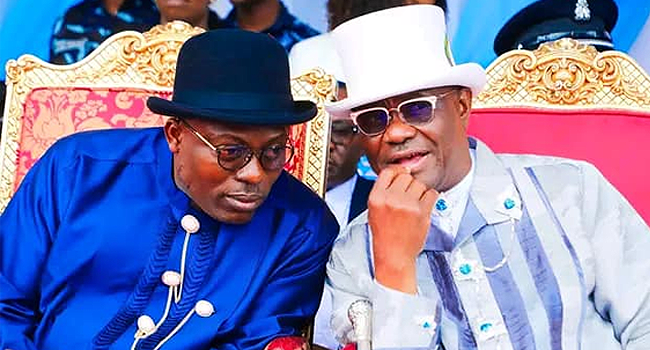
Why Always Rivers State? By Alabidun Shuaib AbdulRahman
Why is it always Rivers State? The question no longer sounds rhetorical. It has become a recurring reflection whenever Nigeria’s democracy appears strained, its institutions weakened, or its constitutional boundaries tested. Since the return to civil rule in 1999, Rivers State has repeatedly found itself at the centre of political crises that transcend ordinary electoral competition. What distinguishes Rivers is not merely the frequency of conflict, but the intensity, longevity and national implications of those crises. From succession battles to legislative breakdowns and federal intervention, the state has functioned as a pressure point where the contradictions of Nigerian democracy are most vividly exposed.
Rivers State’s peculiar trajectory cannot be understood without acknowledging its strategic importance within Nigeria’s political economy. As one of the core oil-producing states in the Niger Delta, Rivers hosts major petroleum assets that are critical to national revenue generation. Control of the state government therefore carries implications that extend far beyond its borders. Political office in Rivers confers access to enormous fiscal allocations, discretionary power over contracts and appointments, and leverage within national party structures. In a political system where state power is often personalised and monetised, such advantages raise the stakes of political competition to extraordinary levels.
From the onset of the Fourth Republic, these dynamics shaped the character of politics in Rivers. Peter Odili’s administration, which ran from 1999 to 2007, coincided with Nigeria’s democratic reawakening after prolonged military rule. His government helped stabilise civilian authority in the state and strengthened the Peoples Democratic Party’s dominance. Yet it also entrenched a culture of elite patronage that blurred the line between party loyalty and state ownership. Power became concentrated around the executive, while institutions that should have acted as counterweights remained weak. By the time Odili left office, Rivers politics had developed a reputation for fierce internal rivalry masked by outward party unity.
The crisis surrounding the 2007 governorship election revealed the fragility beneath that surface. Celestine Omehia’s short-lived tenure, terminated by a Supreme Court judgment that installed Chibuike Rotimi Amaechi on 25 October 2007, underscored how political outcomes in Rivers were increasingly determined by judicial intervention and party machinations rather than popular participation. While the court’s ruling was constitutionally grounded, it reinforced public perceptions that voters were peripheral actors in a system dominated by elite bargaining.
Amaechi’s eight years in office were among the most turbulent in the state’s history. Initially a key figure within the PDP, he later became a leading opposition voice against the party’s national leadership, particularly during the administration of President Goodluck Jonathan. His defection to the All Progressives Congress ahead of the 2015 elections transformed Rivers into a frontline state in Nigeria’s emerging two-party contest. Elections during this period were marked by violence, legal disputes and allegations of widespread irregularities. Rather than strengthening democratic norms, political competition in Rivers became increasingly militarised and litigious.
The ascension of Nyesom Wike to the governorship in 2015 represented both continuity and escalation. A former ally of Amaechi who became his fiercest rival, Wike governed with an assertive style that left little room for dissent. His administration pursued ambitious infrastructure projects and positioned Rivers as a visible development hub in the South-South. However, these achievements existed alongside an aggressive consolidation of political control. Party structures, legislative independence and local government autonomy were subordinated to the governor’s authority. Politics in Rivers became highly personalised, with loyalty to the executive serving as the principal currency of survival.
By the end of his second term in 2023, Wike had transcended state politics. His influence within the PDP and later his alignment with President Bola Tinubu elevated him into the national power equation. This context made the question of succession in Rivers unusually consequential. The emergence of Siminalayi Fubara as governor following the March 2023 election was widely interpreted as an extension of Wike’s political will. Fubara’s victory, secured with over 300,000 votes, appeared to confirm the durability of that arrangement.
Yet, Rivers’ history suggested that such successions are rarely seamless. Within months of assuming office, Fubara’s relationship with his predecessor deteriorated sharply. Disagreements over appointments, control of party structures and the autonomy of the executive quickly escalated. By October 2023, the conflict had spilled into the open, culminating in the burning of the Rivers State House of Assembly complex on 29 October. The symbolism of that event was unmistakable: the physical destruction of the legislature mirrored the collapse of constitutional order in the state.
What followed was an unprecedented institutional crisis. The Rivers State House of Assembly split into rival factions, each claiming legitimacy and producing contradictory resolutions. Impeachment proceedings were initiated and countered. Court orders multiplied, often conflicting, while governance ground to a halt. For months, Rivers effectively operated without a coherent legislative authority. This paralysis was not rooted in ideological disagreement or policy failure but in a struggle over political supremacy between a sitting governor and a former one determined to retain influence.
The depth of the crisis prompted federal intervention. On 18 March 2025, President Bola Tinubu declared a state of emergency in Rivers State, suspending the governor, his deputy and the entire House of Assembly for six months and appointing a sole administrator. The federal government cited political paralysis and threats to oil infrastructure, including incidents of pipeline vandalism, as justification. The National Assembly endorsed the proclamation, giving it legal force despite intense public debate.
This intervention marked a watershed moment in Nigeria’s post-1999 constitutional practice. Unlike previous emergency declarations, particularly the 2013 emergency in the northeast, the Rivers action involved the suspension of elected officials. Legal scholars and civil society organisations questioned its constitutional basis, noting that the 1999 Constitution outlines specific procedures for removing governors and legislators. The episode exposed unresolved ambiguities within Nigeria’s federal system and demonstrated how state-level political breakdowns can invite sweeping federal responses.
When the emergency rule was lifted in September 2025 and the suspended officials reinstated, Rivers returned to civilian governance, but the episode left enduring scars. Institutional credibility had been damaged, public confidence weakened and constitutional norms tested. The crisis projected the extent to which Rivers’ political instability had moved beyond internal party disputes to become a national concern.
The persistence of crisis in Rivers is not coincidental. It reflects structural weaknesses embedded within Nigeria’s democratic framework. The concentration of economic resources elevates political competition into a zero-sum contest. Godfatherism distorts succession, turning governance into a continuation of private power struggles. Political parties function less as democratic platforms and more as instruments of elite control. Legislatures and courts, rather than serving as independent arbiters, are drawn into factional battles. In such an environment, stability becomes fragile and crisis recurrent.
The consequences for governance are profound. Political paralysis disrupts budgetary processes, delays development projects and diverts attention from pressing social challenges. Despite its wealth, Rivers continues to struggle with unemployment, environmental degradation and infrastructural gaps. Citizens bear the cost of elite conflict through weakened service delivery and diminished trust in democratic institutions.
Why, then, does it always seem to be Rivers State? Because Rivers has become a concentrated expression of Nigeria’s unresolved democratic contradictions. It is a state where economic abundance coexists with institutional fragility, where political power is personalised, and where succession is treated as conquest rather than continuity. Until these underlying conditions change, Rivers will continue to oscillate between governance and crisis.
The lesson Rivers offers Nigeria is sobering. Democracy cannot be sustained by elections alone. Without strong institutions, internal party democracy and a political culture that respects constitutional boundaries, electoral victories become triggers for conflict rather than mandates for governance. Rivers State stands as a reminder that when politics is reduced to personal dominance, instability becomes inevitable. Until the structures that reward godfatherism and weaken institutions are dismantled, the question will persist, echoing across election cycles and administrations: why is it always Rivers State?
Analysis
Abroad and the Mirage of Greener Pastures, by Alabidun Shuaib AbdulRahman
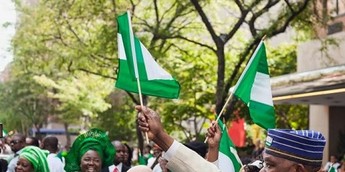
Abroad and the Mirage of Greener Pastures, by Alabidun Shuaib AbdulRahman
For many Nigerians, the idea of leaving the country in search of greener pastures has evolved from a personal aspiration into a collective obsession. It is discussed in living rooms, amplified on social media and often framed as the ultimate proof of success. Yet, beneath this powerful narrative lies a far more complex and troubling reality. The migration journey of many Nigerians abroad has increasingly become a cycle defined by delusion, deportation and depression, exposing not only the personal costs of mass emigration but also the structural failures that continue to make Nigeria unattractive to its own citizens.
The delusion begins with the belief that crossing Nigeria’s borders is a guaranteed escape from hardship. Economic instability, high youth unemployment, currency depreciation, insecurity and declining public services have made life at home feel suffocating for many. According to national labour data in recent years, millions of young Nigerians remain unemployed or underemployed, surviving on informal work with little security. In such an environment, the stories of Nigerians “making it” abroad often exaggerated and selectively told. Social media reinforces this illusion, projecting curated images of success while concealing years of struggle, legal uncertainty and social isolation. Migration, therefore, becomes less a carefully planned economic decision and more a desperate gamble.
What is often ignored is the reality that destination countries are no longer welcoming in the way they once were. Immigration systems across Europe, North America and parts of the Middle East have grown increasingly restrictive over the last decade. Entry visas are harder to obtain, asylum thresholds are higher, and undocumented migrants face swift enforcement. Many Nigerians, unable to meet legal migration requirements, resort to irregular pathways that expose them to exploitation, detention and eventual removal. The assumption that “once you enter, you will settle” has become one of the most dangerous myths fuelling migration today.
Deportation figures over the last five years reveal the scale of this problem. Between 2019 and 2024, official records from the United States Immigration and Customs Enforcement show that 902 Nigerians were deported from the U.S. alone. This made Nigeria the African country with the highest number of deportations from the United States within that period. The numbers fluctuated yearly with a peak in 2019 and renewed increases after the COVID-19 slowdown but the trend remained consistent: Nigerians continued to rank among the most deported African nationals. As of late 2024, over 3,600 Nigerians were still listed on active deportation dockets in the U.S., meaning thousands more face the possibility of forced return.
These figures only tell part of the story. Deportations from the United States represent a fraction of global removals. Nigerians have also been deported from the United Kingdom, Canada, Germany, Turkey and several Gulf countries, particularly the United Arab Emirates. While comprehensive global figures are difficult to aggregate due to varying reporting standards, Nigerian government confirmations and international media reports indicate that hundreds are returned annually from Europe and the Middle East for visa violations, overstaying, or irregular entry. In some cases, deportations occur quietly through “voluntary returns” under pressure, masking the true scale of the problem.
Deportation is not just a bureaucratic process; it is a traumatic human experience. Many deportees return with nothing but the clothes they wore during detention. Savings are wiped out, families are embarrassed, and years of effort collapse overnight. For those who borrowed money or sold property to finance migration, the consequences can be catastrophic. The psychological impact is severe. Depression, anxiety and a sense of personal failure are common among returnees, yet Nigeria’s mental health infrastructure remains ill-equipped to support them. In a society where success is often measured by foreign residence, deportation carries a stigma that deepens isolation and despair.
This emotional toll is worsened by the reality that many deportees return to the same economic conditions that pushed them out in the first place, sometimes worse. Without reintegration support or job opportunities, some struggle to rebuild their lives. Others attempt to migrate again, repeating the cycle. What emerges is not a story of adventure or progress, but one of circular displacement, with human lives caught between hope and rejection.
The uncomfortable truth is that migration itself is not the problem. People have always moved in search of better opportunities. The problem arises when migration becomes a mass escape route driven by structural neglect at home rather than opportunity abroad. Countries whose citizens show little desire to emigrate offer valuable lessons. Japan, for example, consistently records one of the lowest emigration rates in the world, with just over one percent of its population living abroad. This is not because Japanese citizens lack the means to travel, but because living standards, job security, healthcare, infrastructure and social cohesion make staying attractive. The same applies to countries like Finland and Denmark, where strong welfare systems, transparent governance and inclusive economic policies reduce the push factors that drive mass migration.
The United Arab Emirates presents another instructive case. Despite being one of the world’s largest migrant-receiving countries, over 99 percent of Emirati citizens choose to live at home. This reflects deliberate state investment in citizen welfare, education, housing and employment. Development in these countries did not happen by accident; it was the product of long-term planning, institutional discipline and a shared national vision that prioritised citizen wellbeing.
Nigeria’s situation stands in sharp contrast. The country has the human capital, natural resources and entrepreneurial energy to offer its citizens fulfilling lives at home, yet governance failures continue to erode trust in the system. Infrastructure deficits increase the cost of doing business, insecurity discourages investment, and inconsistent policies undermine long-term planning. As long as these conditions persist, foreign lands will continue to appear attractive even when evidence shows that the odds of success are increasingly slim.
What makes the situation more tragic is that the Nigerian diaspora itself is proof of what Nigerians can achieve under functional systems. Nigerians abroad excel in medicine, technology, academia, sports and business, contributing billions of dollars annually in remittances. These successes, however, highlight a painful paradox: Nigerians thrive elsewhere not because they are better suited to foreign environments, but because those environments reward talent, hard work and innovation more consistently.
The fixation on leaving Nigeria has also created a dangerous moral hazard. When migration becomes the default solution, pressure on leaders to fix systemic problems weakens. Citizens disengage, hoping to exit rather than reform. This mindset erodes national solidarity and undermines the collective responsibility required for development. No country has ever developed sustainably through mass emigration of its most productive population.
Reversing this trend requires more than slogans about patriotism. It demands credible action. Economic policies must translate into real jobs, not just growth figures. Education must align with labour market needs, equipping young people with skills relevant to a modern economy. Security must be restored so that lives and investments are protected. Institutions must function predictably so citizens can plan their futures with confidence. Without these, calls for Nigerians to “believe in the country” will ring hollow.
Equally important is honest public conversation about migration. Young Nigerians deserve accurate information about the risks, legal realities and psychological costs of irregular migration. Romanticising life abroad while ignoring deportation statistics and mental health consequences does a disservice to an already vulnerable population. Migration should be a choice made from strength, not desperation.
-

 Analysis6 days ago
Analysis6 days agoThe Agony of a Columnist, by Alabidun Shuaib AbdulRahman
-

 Analysis5 days ago
Analysis5 days agoNow That Nigeria Has a U.S. Ambassador-Designate, by Boniface Ihiasota
-

 Diplomacy5 days ago
Diplomacy5 days agoCARICOM Raises Alarm Over Political Crisis in Haiti
-

 News6 days ago
News6 days agoCourt, Congress Pile Pressure on DHS Over Minnesota Operations
-

 News6 days ago
News6 days agoTinubu Unhurt After Brief Stumble at Turkey Reception
-

 News6 days ago
News6 days agoMacron invites Chad’s Déby to Paris amid push to reset ties


